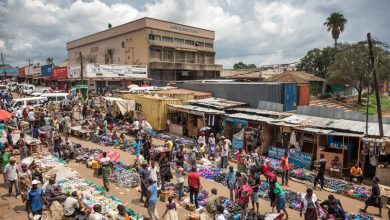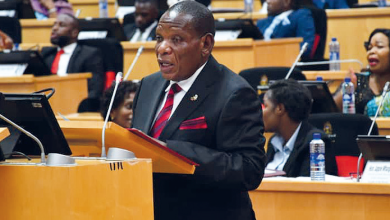Experts decry agro sector performance
Experts have warned that despite substantial investments, the agriculture sector remains hamstrung by structural, climatic and policy challenges that stifle growth.
The concern was raised in the context of the three-day 21st National Agriculture Fair, which ended yesterday in Blantyre.
The experts said despite support from programmes such as the National Economic Empowerment Fund and the Agricultural Commercialisation Project, the sector’s contribution to gross domestic product (GDP) has been fluctuating in recent years.

at the agriculture fair. | Henry Chilowa
Data from the Reserve Bank of Malawi (RBM) show that agriculture accounted for 22.5 percent of GDP in 2021 and 2022, before declining to 22.3 percent in 2023, 22 percent in 2024 and is projected to further decline to 21 percent in 2025.
In an interview on Friday, agriculture economist Innocent Phangaphanga highlighted the effects of structural transformation in the agriculture sector.
He said: “As economies develop, the share of agriculture in GDP typically falls even if the sector remains dominant in employment.
“Services and trade have expanded faster than agriculture, so the relative share has shrunk, even where output has grown.”
Phangaphanga, who is Lilongwe of University of Agriculture and Natural Resources Centre for Agricultural Research and Development director, said low productivity growth has hindered progress, citing systemic constraints such as weak extension services, limited mechanisation and declining soil fertility.
He noted that climate vulnerability adds to the challenges, with recurring droughts, floods and cyclones eroding gains made in the sector.
Agriculture policy development analyst Tamani Nkhono Mvula said Malawi has failed to adjust policies to suit the changing environment.
He said: “We have been discussing climate change for a while and it is not bringing anything new. Increased flooding and drought are issues we have experienced before.
“We need to repurpose our policies and investments to address these challenges.”
Nkhono Mvula emphasised the importance of value addition and private sector engagement for import substitution, adding that there is need to identify quick wins and value chains where Malawi has a competitive advantage.
Speaking during the opening of the agriculture fair in Blantyre on Thursday, Ministry of Agriculture Principal Secretary Geoffrey Mamba reaffirmed the government’s commitment to transforming the agriculture sector.
He highlighted the shift from rain-fed to irrigation-based production, mechanisation and soil nutrition management as key priorities.
The fair was officially opened by Minister of Agriculture Sam Kawale, who urged farmers, researchers and entrepreneurs to view agriculture as a business-driven and technologically enabled sector rather than just a subsistence activity.
The fair was held under the theme ‘Towards commercialisation and economic transformation through smart and sustainable agricultural systems’.
This year’s fair attracted 115 exhibitors against last year’s 170.





